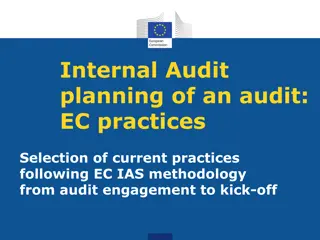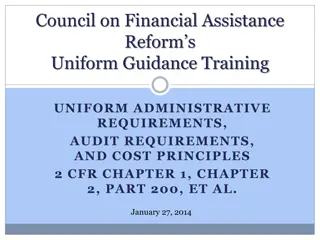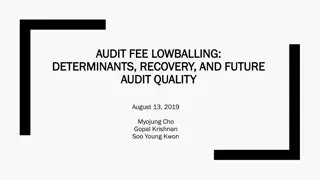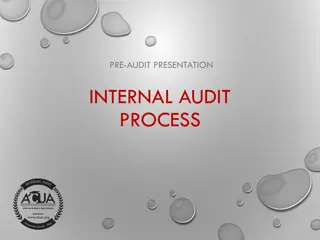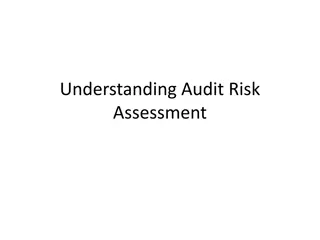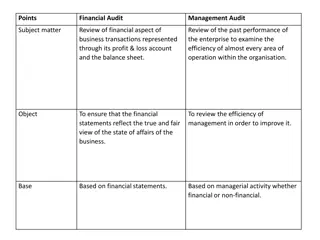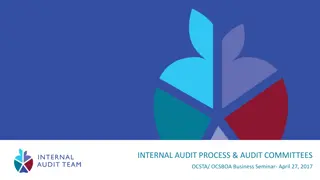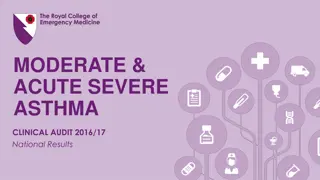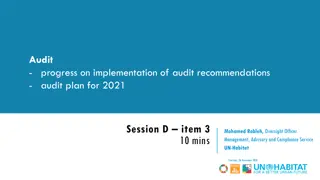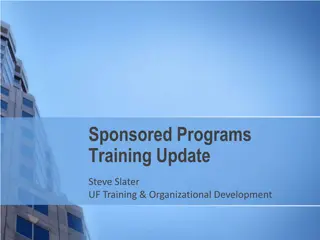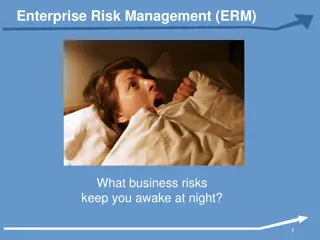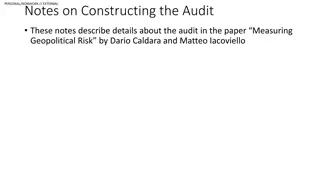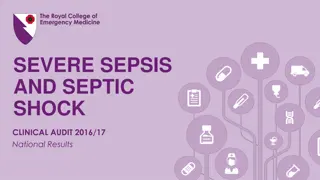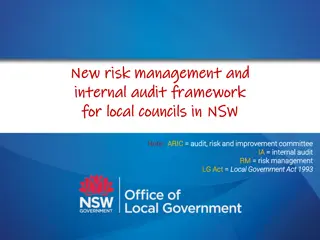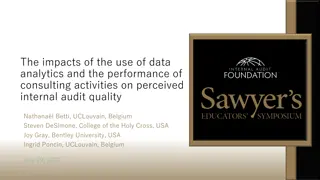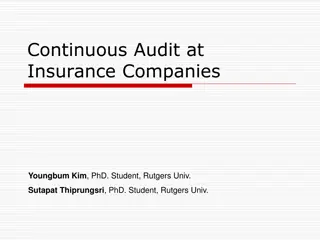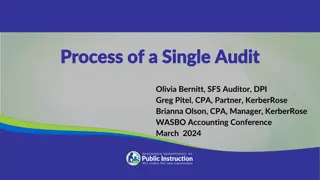Mitigating Risks in Sponsored Programs - Audit Trends and Common Themes
The article discusses risk mitigation in sponsored programs, focusing on audit trends and common themes identified in recent NSF reports. The audits revealed questioned costs totaling over $860,000, highlighting issues such as travel costs, pre-award expenses, and inadequate documentation. Furthermore, NSF resolved grantee audits, sustaining significant amounts at various universities. Test your knowledge section presents scenarios involving project budgeting and adjustments.
Download Presentation

Please find below an Image/Link to download the presentation.
The content on the website is provided AS IS for your information and personal use only. It may not be sold, licensed, or shared on other websites without obtaining consent from the author. Download presentation by click this link. If you encounter any issues during the download, it is possible that the publisher has removed the file from their server.
E N D
Presentation Transcript
Risk Mitigation for Sponsored Programs January 8, 2018
One Agency (NSF) Latest semi-annual OIG report: NSF contractors conducted audits of four NSF awardees that had expended more than $751 million of NSF funds during the respective audit periods. The audits assessed the reasonableness, allowability, and allocability of costs across all NSF awards at the institutions.
Audit Trends The four audits of all institutions awards identified, in total, more than $860,000 of questioned costs: University of Southern California ($639,479) Raytheon BBN Technologies ($96,106) Georgia Tech Research Corporation ($68,837) University of Arizona ($56,904).
Audit Trends Travel costs Expenses claimed near the end of the award period Questioned subaward charges Unapproved pre-award costs Cost transfers
Audit Trends Also, during the reporting period, NSF resolved four grantee audits, sustaining the following amounts in respective audit reports: $78,728 for the University of California Berkeley $134,514 for the University of Wisconsin Madison $70,040 for Stanford University $11,214 for Pennsylvania State University
Common Themes Inadequate justification Lack of documentation
Test Your Knowledge Equipment purchase included a one-year warranty. PI wants to purchase a two-year maintenance agreement after the warranty expires. PI has a budget for materials and supplies but completes project using supplies already on hand. (S)he wants to re-stock supplies. On an equipment grant, PI wants to purchase a component that will enhance the performance of the main piece of equipment. After the start of a project, the PI realizes that he will need 3months of salary instead of the two months that were budgeted. Can this be done? How?


